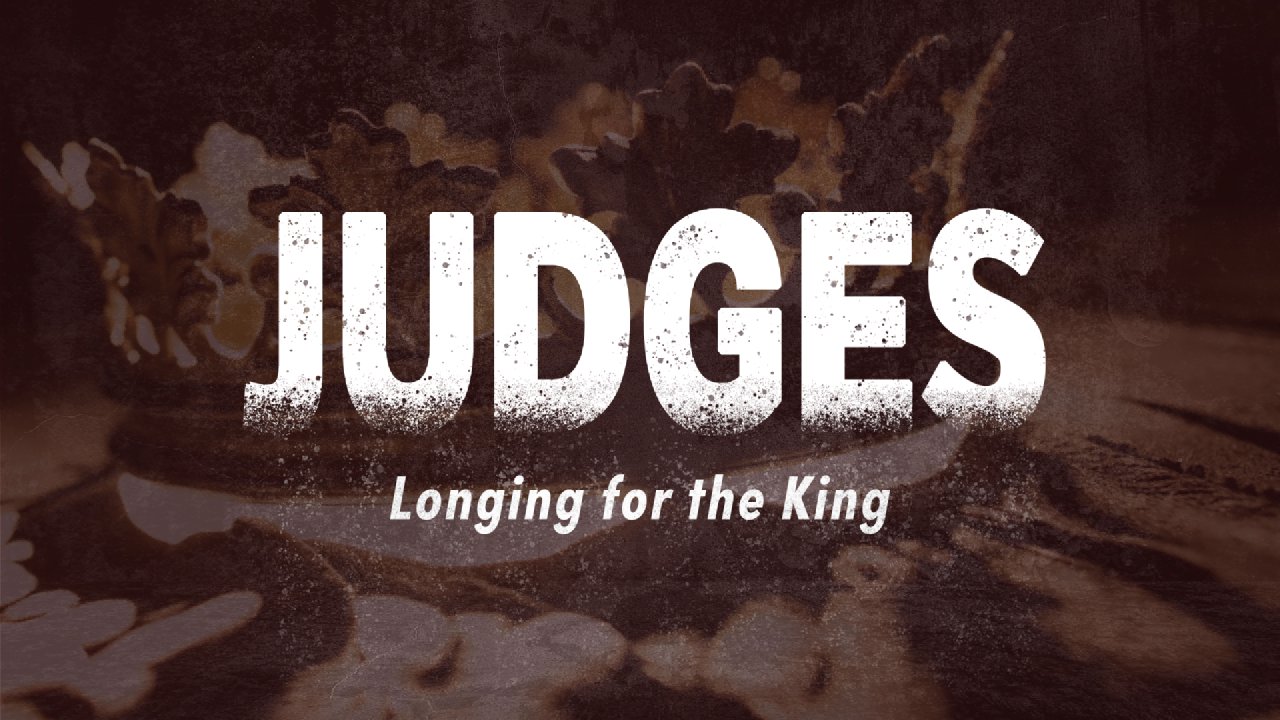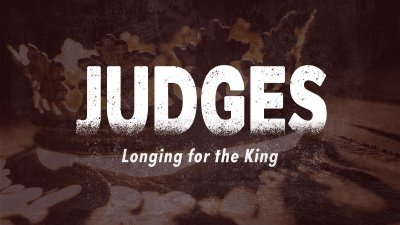Judges 1:1-3:6
English Standard Version
After the death of Joshua, the people of Israel inquired of the Lord, “Who shall go up first for us against the Canaanites, to fight against them?” The Lord said, “Judah shall go up; behold, I have given the land into his hand.” And Judah said to Simeon his brother, “Come up with me into the territory allotted to me, that we may fight against the Canaanites. And I likewise will go with you into the territory allotted to you.” So Simeon went with him. Then Judah went up and the Lord gave the Canaanites and the Perizzites into their hand, and they defeated 10,000 of them at Bezek. They found Adoni-bezek at Bezek and fought against him and defeated the Canaanites and the Perizzites. Adoni-bezek fled, but they pursued him and caught him and cut off his thumbs and his big toes. And Adoni-bezek said, “Seventy kings with their thumbs and their big toes cut off used to pick up scraps under my table. As I have done, so God has repaid me.” And they brought him to Jerusalem, and he died there.
And the men of Judah fought against Jerusalem and captured it and struck it with the edge of the sword and set the city on fire. And afterward the men of Judah went down to fight against the Canaanites who lived in the hill country, in the Negeb, and in the lowland. And Judah went against the Canaanites who lived in Hebron (now the name of Hebron was formerly Kiriath-arba), and they defeated Sheshai and Ahiman and Talmai.
From there they went against the inhabitants of Debir. The name of Debir was formerly Kiriath-sepher. And Caleb said, “He who attacks Kiriath-sepher and captures it, I will give him Achsah my daughter for a wife.” And Othniel the son of Kenaz, Caleb's younger brother, captured it. And he gave him Achsah his daughter for a wife. When she came to him, she urged him to ask her father for a field. And she dismounted from her donkey, and Caleb said to her, “What do you want?” She said to him, “Give me a blessing. Since you have set me in the land of the Negeb, give me also springs of water.” And Caleb gave her the upper springs and the lower springs.
And the descendants of the Kenite, Moses' father-in-law, went up with the people of Judah from the city of palms into the wilderness of Judah, which lies in the Negeb near Arad, and they went and settled with the people. And Judah went with Simeon his brother, and they defeated the Canaanites who inhabited Zephath and devoted it to destruction. So the name of the city was called Hormah. Judah also captured Gaza with its territory, and Ashkelon with its territory, and Ekron with its territory. And the Lord was with Judah, and he took possession of the hill country, but he could not drive out the inhabitants of the plain because they had chariots of iron. And Hebron was given to Caleb, as Moses had said. And he drove out from it the three sons of Anak. But the people of Benjamin did not drive out the Jebusites who lived in Jerusalem, so the Jebusites have lived with the people of Benjamin in Jerusalem to this day.
The house of Joseph also went up against Bethel, and the Lord was with them. And the house of Joseph scouted out Bethel. (Now the name of the city was formerly Luz.) And the spies saw a man coming out of the city, and they said to him, “Please show us the way into the city, and we will deal kindly with you.” And he showed them the way into the city. And they struck the city with the edge of the sword, but they let the man and all his family go. And the man went to the land of the Hittites and built a city and called its name Luz. That is its name to this day.
Manasseh did not drive out the inhabitants of Beth-shean and its villages, or Taanach and its villages, or the inhabitants of Dor and its villages, or the inhabitants of Ibleam and its villages, or the inhabitants of Megiddo and its villages, for the Canaanites persisted in dwelling in that land. When Israel grew strong, they put the Canaanites to forced labor, but did not drive them out completely.
And Ephraim did not drive out the Canaanites who lived in Gezer, so the Canaanites lived in Gezer among them.
Zebulun did not drive out the inhabitants of Kitron, or the inhabitants of Nahalol, so the Canaanites lived among them, but became subject to forced labor.
Asher did not drive out the inhabitants of Acco, or the inhabitants of Sidon or of Ahlab or of Achzib or of Helbah or of Aphik or of Rehob, so the Asherites lived among the Canaanites, the inhabitants of the land, for they did not drive them out.
Naphtali did not drive out the inhabitants of Beth-shemesh, or the inhabitants of Beth-anath, so they lived among the Canaanites, the inhabitants of the land. Nevertheless, the inhabitants of Beth-shemesh and of Beth-anath became subject to forced labor for them.
The Amorites pressed the people of Dan back into the hill country, for they did not allow them to come down to the plain. The Amorites persisted in dwelling in Mount Heres, in Aijalon, and in Shaalbim, but the hand of the house of Joseph rested heavily on them, and they became subject to forced labor. And the border of the Amorites ran from the ascent of Akrabbim, from Sela and upward.
Now the angel of the Lord went up from Gilgal to Bochim. And he said, “I brought you up from Egypt and brought you into the land that I swore to give to your fathers. I said, ‘I will never break my covenant with you, and you shall make no covenant with the inhabitants of this land; you shall break down their altars.’ But you have not obeyed my voice. What is this you have done? So now I say, I will not drive them out before you, but they shall become thorns in your sides, and their gods shall be a snare to you.” As soon as the angel of the Lord spoke these words to all the people of Israel, the people lifted up their voices and wept. And they called the name of that place Bochim. And they sacrificed there to the Lord.
When Joshua dismissed the people, the people of Israel went each to his inheritance to take possession of the land. And the people served the Lord all the days of Joshua, and all the days of the elders who outlived Joshua, who had seen all the great work that the Lord had done for Israel. And Joshua the son of Nun, the servant of the Lord, died at the age of 110 years. And they buried him within the boundaries of his inheritance in Timnath-heres, in the hill country of Ephraim, north of the mountain of Gaash. And all that generation also were gathered to their fathers. And there arose another generation after them who did not know the Lord or the work that he had done for Israel.
And the people of Israel did what was evil in the sight of the Lord and served the Baals. And they abandoned the Lord, the God of their fathers, who had brought them out of the land of Egypt. They went after other gods, from among the gods of the peoples who were around them, and bowed down to them. And they provoked the Lord to anger. They abandoned the Lord and served the Baals and the Ashtaroth. So the anger of the Lord was kindled against Israel, and he gave them over to plunderers, who plundered them. And he sold them into the hand of their surrounding enemies, so that they could no longer withstand their enemies. Whenever they marched out, the hand of the Lord was against them for harm, as the Lord had warned, and as the Lord had sworn to them. And they were in terrible distress.
Then the Lord raised up judges, who saved them out of the hand of those who plundered them. Yet they did not listen to their judges, for they whored after other gods and bowed down to them. They soon turned aside from the way in which their fathers had walked, who had obeyed the commandments of the Lord, and they did not do so. Whenever the Lord raised up judges for them, the Lord was with the judge, and he saved them from the hand of their enemies all the days of the judge. For the Lord was moved to pity by their groaning because of those who afflicted and oppressed them. But whenever the judge died, they turned back and were more corrupt than their fathers, going after other gods, serving them and bowing down to them. They did not drop any of their practices or their stubborn ways. So the anger of the Lord was kindled against Israel, and he said, “Because this people have transgressed my covenant that I commanded their fathers and have not obeyed my voice, I will no longer drive out before them any of the nations that Joshua left when he died, in order to test Israel by them, whether they will take care to walk in the way of the Lord as their fathers did, or not.” So the Lord left those nations, not driving them out quickly, and he did not give them into the hand of Joshua.
Now these are the nations that the Lord left, to test Israel by them, that is, all in Israel who had not experienced all the wars in Canaan. It was only in order that the generations of the people of Israel might know war, to teach war to those who had not known it before. These are the nations: the five lords of the Philistines and all the Canaanites and the Sidonians and the Hivites who lived on Mount Lebanon, from Mount Baal-hermon as far as Lebo-hamath. They were for the testing of Israel, to know whether Israel would obey the commandments of the Lord, which he commanded their fathers by the hand of Moses. So the people of Israel lived among the Canaanites, the Hittites, the Amorites, the Perizzites, the Hivites, and the Jebusites. And their daughters they took to themselves for wives, and their own daughters they gave to their sons, and they served their gods.

Conquest, Compromise, and the Mercy of God
September 11, 2022 • Gabe Davis • Judges 1:1—3:6
More from
Judges




